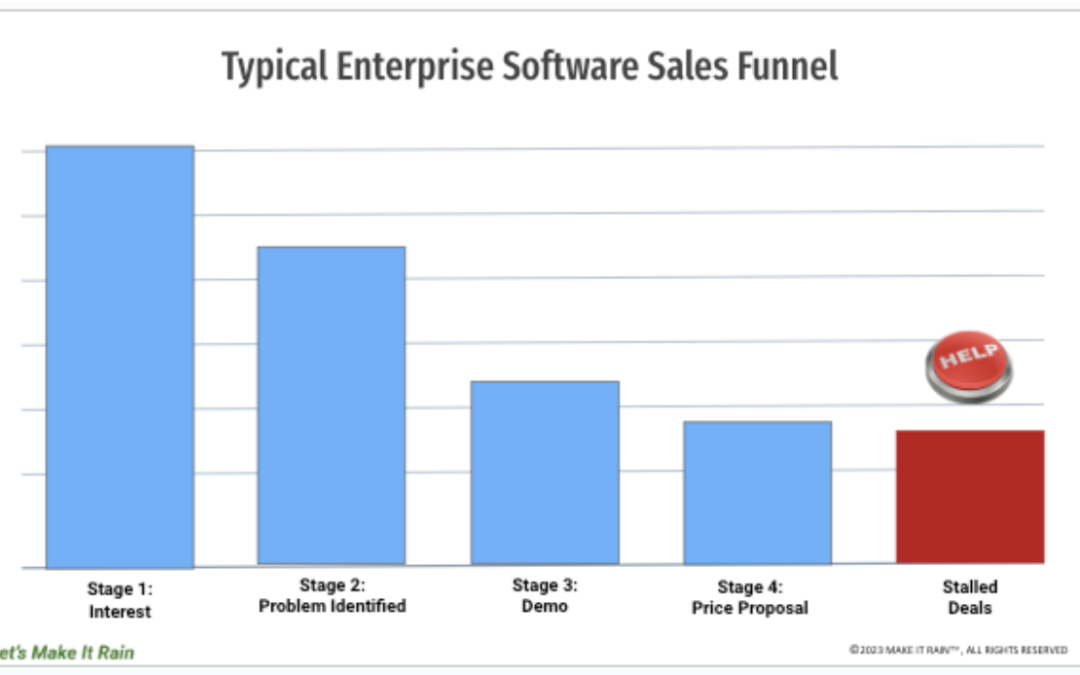When enterprise software deals stall, customers are denied increased efficiencies and vendors the revenue needed for growth and liquidity events. This is particularly problematic with early-stage companies where every deal – large and small – could be the determining factor in attracting an investor or the timing of a more strategic liquidity event.
So, how do B2B companies and their technical sponsors avoid/advance stalled enterprise software deals?
Senior IT Executive Bob Gentile shared his thoughts on technology investments that he approved at various F500 companies:
“Every successful purchase had the following characteristics:
1. A credible technical architect to champion the implementation.
2. A decision-making executive who can sponsor and fund the project.
3. Well defined success criteria that solidly justify the ROI
4. Cross-functionally within their customer, including IT, procurement, and legal, to mitigate any roadblocks.
5. Sale was managed as a well-structured project with clear timelines and objectives, mutually agreed upon by all parties.”
Selling enterprise software to large organizations presents a unique set of complexities that can’t be solved by product marketing, sales enablement and salesmanship alone. Early stage vendors would do well to consider Bob’s critical success factors and engage an experienced – and impartial – Deal Coach, who possesses a cash-flow centric approach to current deals, freeing CROs to strategize long-term. For firms without a CRO, Deal Coaches should also offer part-time (a.k.a. ‘fractionalized’) services to help CEOs optimize go-to-market strategies, talent acquisition, and sales velocity for sustainable growth.
Impartial Deal Coaches should be focused on helping sellers:
✧ Have conversations that matter, focused on customer-specific business outcomes.
✧ Build mutually agreed upon plans for sellers and their sponsors.
✧ Deliver irresistible proposals that mobilize Sponsors and Economic Buyers to support and execute purchases.
✧ Uncover blind spots to anticipate issues and plan for contingencies.
✧ Translate technology into business value, customized to the customer’s objectives.
B2B salespeople have the opportunity – nay, a responsibility – to help clients disrupt the status quo and improve their business. Impartial Deal Coaches share this obligation with the added responsibility of helping vendors accelerate their strategic growth and liquidity goals.
- A Whole Pie or Just a Slice? Fractional Benefits in a Hard Economy - October 5, 2023
- 5 Critical Success Factors for Enterprise Software Sales - September 22, 2023
- Unleash Sales Superstars: The Power of Effective Deal Coaching - July 7, 2023

